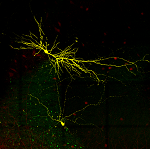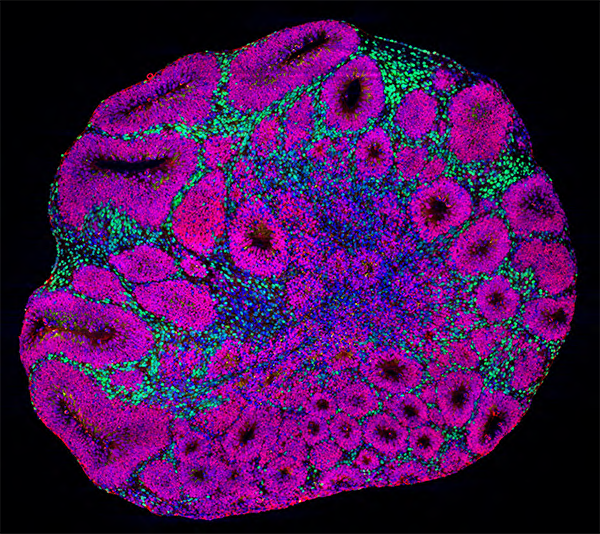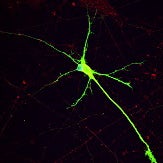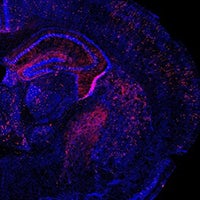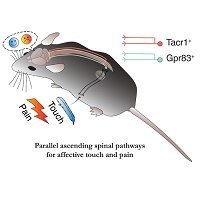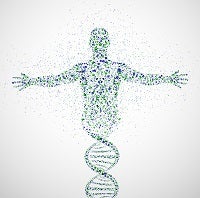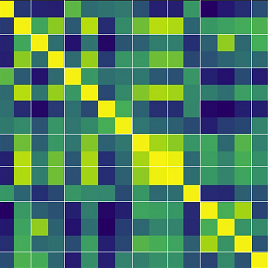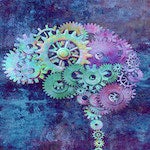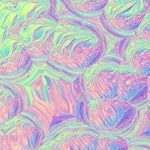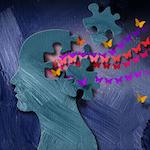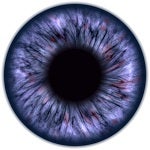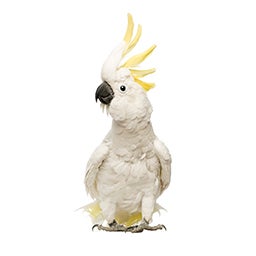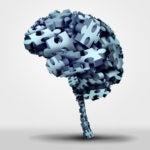Neuro Topics - Autism spectrum disorder (ASD)
SEARCH OTHER RESEARCH AREAS
March 27, 2024
Topiramate — an antiseizure medication prescribed to treat epilepsy as well as migraines and bipolar disorder — does not appear to increase the risk of autism spectrum disorder (ASD) among children exposed to it prenatally, according to a new study led by Harvard T.H. Chan School of Public Health.
Original article in: New England Journal of Medicine >
February 6, 2024
Yu-Tzu Shih, Jason Alipio, and Amar Sahay share new research on the autism linked gene Dyrk1a. They find that developmental differences in neural circuitry and social cognition observed in mutant mice with only one copy of the Dyrk1a gene can be rescued by targeting inhibitory neuron plasticity in adulthood.
Original article in: Neuron >
September 29, 2022
Boston Children's Hospital Answers article on new research from Joseph Gonzalez-Heydrich, David Glahn, and colleagues, co-first authors Catherine Brownstein and Elise Douard (Université de Montréal) finding that children with early-onset psychosis have similar rates of deleterious copy number variants (CNVs) as children diagnosed with autism spectrum disorder. The new study suggests that all children and adolescents with a psychotic diagnosis might benefit from undergoing genetic screening.
Original article in: American Journal of Psychiatry >
March 8, 2022
HMS News article on a new report on depression commissioned by the Lancet and World Psychiatric Association. The report included recommendations for how health care practitioners, policymakers, community members, and people with depression can work together to build sustainable solutions in response to the ongoing mental health crises caused by the COVID-19 pandemic.
Original article in: American Journal of Psychiatry >
March 8, 2022
Erin Hecht answers this question as part of Harvard Gazette's Wondering, a new series of random questions answered by Harvard experts.
Original article in: American Journal of Psychiatry >
March 8, 2022
Bruna Paulsen shares new research from the labs of Paola Arlotta and colleagues, using organoid models of the human cerebral cortex to uncover cell-type-specific neurodevelopmental abnormalities that are shared across three different ASD risk genes.
Original article in: American Journal of Psychiatry >
February 7, 2022
Harvard Gazette article on recent study from lead author James McKowen and colleagues suggesting that 20% of young adults treated for alcohol or drug use may have undiagnosed traits characteristic of autism-spectrum disorder.
Original article in: American Journal of Addictions >
Disease Characteristics of Dopaminergic Neurons in Neurodevelopmental and Neuropsychiatric Disorders
July 20, 2021
Maria Sundberg shares new research from the lab of Mustafa Sahin on the role of a small piece of chromosome 16, called the 16p11.2 locus, in disease phenotypes of dopaminergic neurons. The team identified that RhoA pathway activation led to network dysfunction in 16p11.2 deletion neurons. Its inhibitor, Rhosin, rescued the hyperactivity of these neuronal networks. In the future, the RhoA pathway and its inhibitors may serve as potential therapeutic targets.
Original article in: Nature Communications >
December 10, 2020
Xin Jin, working with the teams of Paola Arlotta, Feng Zhang, Aviv Regev and Joshua Levin, shares the development of in vivo Perturb-Seq, a high-content and scalable method to study cohorts of risk genes implicated in brain disorders.
Original article in: Science >
November 13, 2020
Seungwon (Sebastian) Choi shares new research from the labs of David Ginty and colleagues at the University of Pittsburgh. They applied new mouse genetic tools in conjunction with anatomical, physiological and behavioral approaches to better understand the functional organization of ascending touch, thermal and pain pathways.
Original article in: Nature >
November 13, 2020
Klaus Schmitz and Kyriacos Markianos share a powerful method for identifying important noncoding regions in the human genome—revealing the potential significance of gene regulation in cognitive and social function.
Original article in: Scientific Reports >
November 13, 2020
Tatsuya Tsukahara shares new research from the lab of Sandeep Robert Datta, on the use of their Motion Sequencing (MoSeq) behavioral analysis technique, built on 3D animal postures and unsupervised machine learning, to organize large and complex behavioral datasets from mice treated with neuroactive and psychoactive drugs.
Original article in: Nature Neuroscience >
August 24, 2020
Harvard Gazette article recapping a recent Zoom seminar with author and Lewis K. Chan Arts Lecturer and Professor of the Practice of Non-Fiction, Michael Pollan discusses his latest work on the world’s most-used psychoactive substance.
Original article in: Nature Neuroscience >
August 24, 2020
HMS News article on new research from the labs of Isaac Kohane and colleagues, co-first authors Yuan Luo and Alal Eran, revealing a subtype of autism associated with lipid abnormalities.
Original article in: Nature Medicine >
March 4, 2020
HMS News article on new research from the lab of Jacob Hooker, first author Nicole Zürcher, showing abnormally low levels of a key protein observed in brains of young men with autism spectrum disorder.
Original article in: Molecular Psychiatry >
February 3, 2020
Harvard Gazette Q+A with David Ginty and Lauren Orefice on a novel approach to treating tactile hypersensitivity in patients with autism-spectrum disorders.
Original article in: Molecular Psychiatry >
October 23, 2019
HMS News article on the first evidence of immune response targeting specialized brain cells in autism. From a postmortem study of human brains, from the lab of Matthew Anderson, first author Marcello DiStasio.
Original article in: Annals of Neurology >
October 11, 2019
Harvard University has received a $20 million gift from philanthropists Lisa Yang and Hock Tan, an alumnus of Harvard Business School, to establish The Hock E. Tan and K. Lisa Yang Center for Autism Research at Harvard Medical School.
Original article in: Annals of Neurology >
August 8, 2019
New research points to potential therapy for abnormal touch sensitivity in autism spectrum disorders.
Original article in: Annals of Neurology >
July 22, 2019
New research suggests that two simple, quantifiable measures — spontaneous fluctuations in pupil dilation or heart rate — could enable much earlier diagnosis of Rett syndrome and possibly other disorders with autism-like features.
Original article in: PNAS >
July 8, 2019
Harvard Gazette article on new research from Radcliffe Fellow Ani Patel suggesting that humans are not the only species who can dance to a beat.
Original article in: PNAS >
June 28, 2019
HMS News interview with Pascal Kaeser on the debut of a Wiki-like knowledge base for more than 1,000 synaptic genes.
Original article in: PNAS >
October 9, 2018
BCH Vector Blog post on new work from the labs of Mustafa Sahin, Wade Regehr and colleagues, delineating sensitive periods for the treatment of cerebellum-mediated autistic-like behaviors in mice
Original article in: Cell Reports >


